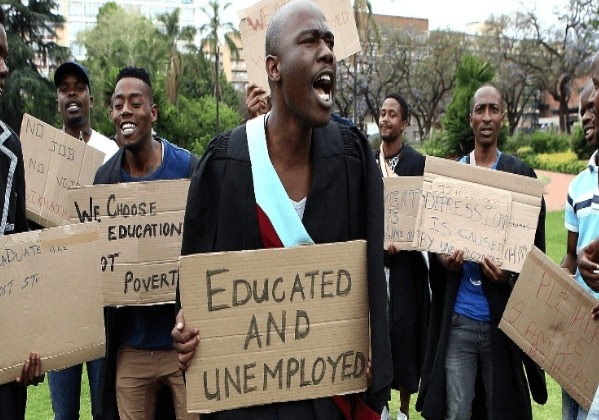Nigeria is facing an unprecedented unemployment crisis, with millions of young people struggling to find work.
The country’s inability to engage its youth meaningfully through job creation has led to an increasing number of unemployed people in that age bracket with no contribution to the economic growth of the country.
Join our WhatsApp ChannelAccording to the National Bureau of Statistics, the youth unemployment rate in Nigeria stands at 7.2% as of 2023. This translates to millions of young people between the ages of 15 and 24 who are unable to find meaningful employment. The situation is even more dire when you consider that the unemployment rate for young people with tertiary education is a staggering 30.6%.
Each academic year, universities and polytechnics produce thousands of graduates, but the labor market is unable to absorb them. This has led to a situation where many graduates are forced to wait for years before finding a job, and some may never find employment at all.
The situation is further complicated by the fact that many graduates lack the skills and knowledge required by employers. A recent survey by the Nigerian Employers Consultative Association found that 70% of employers in Nigeria believe that graduates are not adequately prepared for the workforce.
To address the issue of youth unemployment in Nigeria, the government has launched several initiatives. The National Social Investment Program, for example, was to provide job training and employment opportunities for young people. The N-Power program provides job training and employment opportunities for young people in areas such as agriculture, health, and education. The Government Enterprises Empowerment Program provides support for small businesses and entrepreneurs, including young people.
Despite these efforts, more needs to be done to address the crisis of youth unemployment in Nigeria. The government must work to create more job opportunities, improve the education system, and address corruption. Additionally, the private sector must also play a role in creating jobs and providing training and support for young people.
The consequences of not addressing this crisis are severe. Youth unemployment can lead to poverty, social unrest, and a brain drain as talented young people seek opportunities abroad. It can also have long-term effects on the economy and society, including reduced economic growth and increased inequality.
However, experts believe that more needs to be done to address the root causes of unemployment in Nigeria. “The government needs to invest in education and skills development, as well as provide incentives for businesses to hire young people,” said Hamzat Lawal, founder of Connected Development. “We also need to promote entrepreneurship and innovation, as well as provide support for small businesses and startups.”
In addition, there is a need for a comprehensive reform of the education system, to ensure that graduates have the skills and knowledge required by employers. “We need to align our curriculum with the needs of the labor market, and provide more practical training and internships for students,” said Great Owete, talent acquisition manager at EdoBEST.
The youth unemployment crisis in Nigeria is a complex issue that requires a multifaceted approach and immediate attention. The government, private sector, and civil society must work together to provide job opportunities, skills development, and support for young people. Only then can we hope to address this crisis and build a more prosperous future for Nigeria’s youth.

















Follow Us